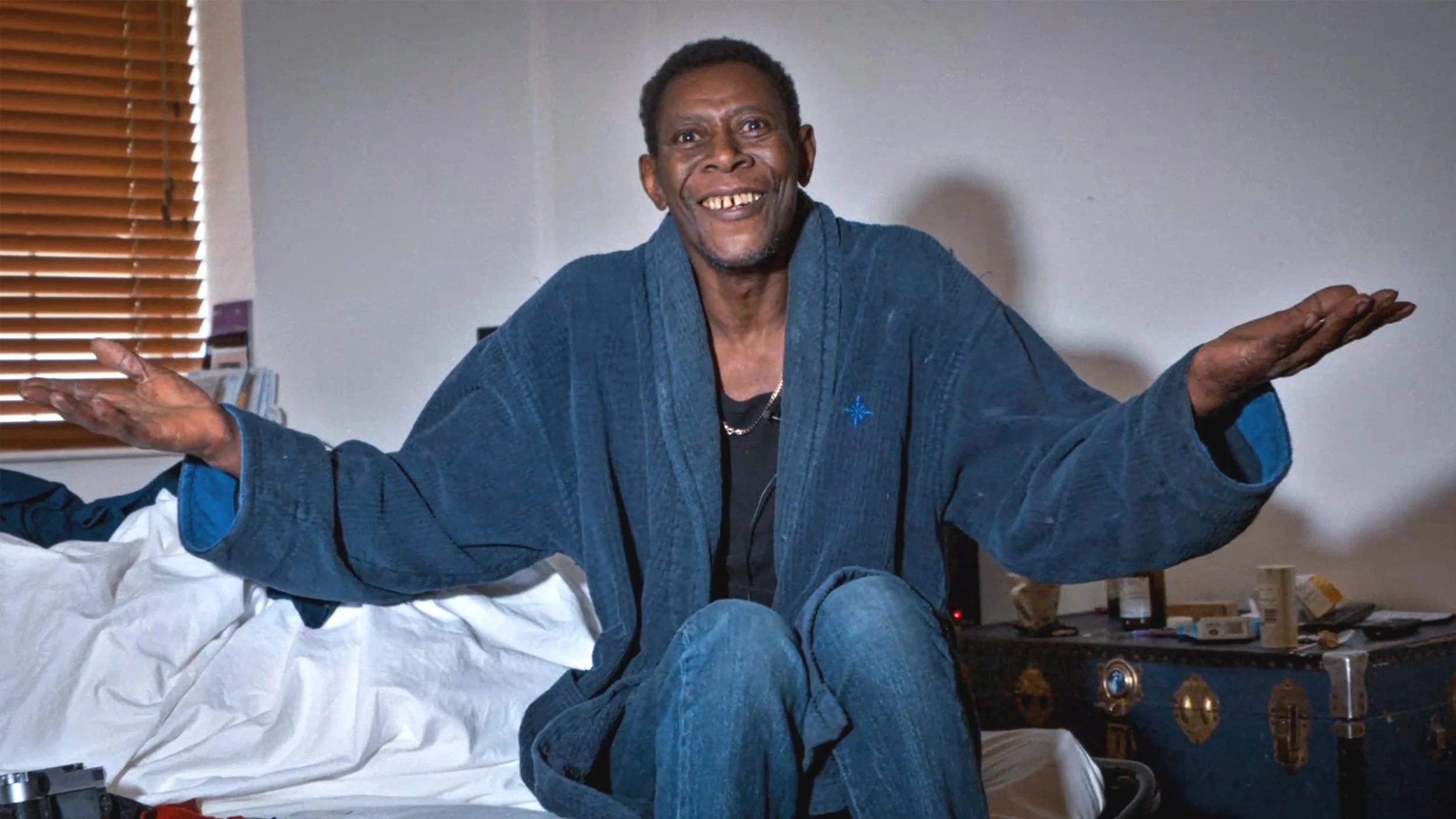My Friend Lanre
Leo Regan’s documentary about his friend, the photographer Lanre Fehintola, completes his candid trilogy.
The story behind the making of this film by Leo Regan is a very remarkable one. The Lanre of the title is the late Lanre Fehintola who was born in 1958 in Nigeria but whose parents came to Britain to live just two years later. After a troubled childhood that saw him placed in a children's home at the age of eleven and in a reform school in Durham not much later, Lanre turned to photo-journalism and came to know Leo Regan who was working in the same line. They were soon friends and when Regan became a filmmaker working in television, he would express that friendship by making two documentaries about Lanre Fehintola and the situation in which he then found himself.
By that time Lanre was developing his work as a photographer (some of his striking black-and-white pictures are seen in the course of this film). His aim, one not so very different from that of Tish Murtha whose story was recently told in Tish, was to document the ordinary, everyday lives of real people whose stories are rarely told. In researching the hard drug scene as part of that approach, Lanre became a heroin addict himself and Regan's first film about him, Don't Get High on Your Own Supply made in 1998, recorded this situation. Its sequel in 2001 showed Lanre’s desperate attempt to get off heroin – indeed its title was Cold Turkey. Filming in this way might not to an outsider suggest an act of friendship, but Lanre wanted his experiences to be recorded. Indeed, it doesn't seem far-fetched to believe that being seen on film in this way was for Lanre an extension of his own photographic work given that authentic portraits of the disadvantaged in society were his prime focus.
To make such films, ones that would never have come about but for the close bond between these two men, is certainly out of the ordinary. Yet even more remarkable is the arrival on our screens of this third observational documentary looking at the life of Lanre Fehintola, this one made for the cinema but incorporating footage from the earlier pieces so that it stands as a full portrait and does not require that the viewer should have seen its predecessors. It would seem that what triggered this further filming was Lanre’s unexpected discovery that he had cancer, a diagnosis indicating too that it was terminal. Once again it was self-evident that despite the extremity of the situation Lanre wanted it to be filmed.
My Friend Lanre is a clear expression of the affection and respect felt by Regan for his friend, a rapport in no way weakened by Lanre’s more recent references to his past bad behaviour and spells in prison. In looking back at Lanre’s earlier history and also following the course of the cancer, both its advance and a period of remission, the film can on occasion become a little confusing and Lanre Fehintola emerges as a complex man not always easy to understand. If that is reflected in the film, that is part of its honesty. Lanre’s lack of fear in the face of death is striking. He declares that it is a privilege to be able to say that his work has been his life but suggests that only too late in life has he been able to be openly himself. Some of his past behaviour may have been a cause of shame but, when spiralling downwards with his addiction, was it due to naivety and recklessness or a consequence of his childhood experiences? Did he blame himself, unjustly or not? Whatever made him the man he was, we see touchingly how a devoted girlfriend of his later years found him seeing things from his own viewpoint and unable to appreciate hers. We learn too of how, despite having always had difficulties with relationships, he continued to miss the woman he had been with longest (twelve years) and who had died in 2018.
Ultimately My Friend Lanre is much more about the man than about his work (the photographs of his that we see play much less of a role here than those of Tish Murtha in the recent documentary about her). Despite that we hear almost nothing of his siblings or of his children (Wikipedia reveals he had two sons, Olufemi Fehintola and Jason Murphy). It's also odd that the film seems to stop just short of his death which took place in Taunton in February 2021. He was 63 and, if this film sometimes leaves one asking questions, it is nevertheless a work that captures the sheer complexity of an individual who is here commemorated by someone who was clearly the best man to do it.
MANSEL STIMPSON
Featuring Lanre Fehintola, Leo Regan, Errol.
Dir Leo Regan, Pro Mary Carson, Ph Leo Regan, Ed Chloë Lambourne, Music Miles Danso and the Afro Steppas Band.
Emu Pictures/BFI/Doc Society-Icon.
84 mins. UK. 2023. UK Rel: 29 January 2024 and from 1 February 2024 on Curzon Home Cinema and on digital platforms. Cert. 18.


